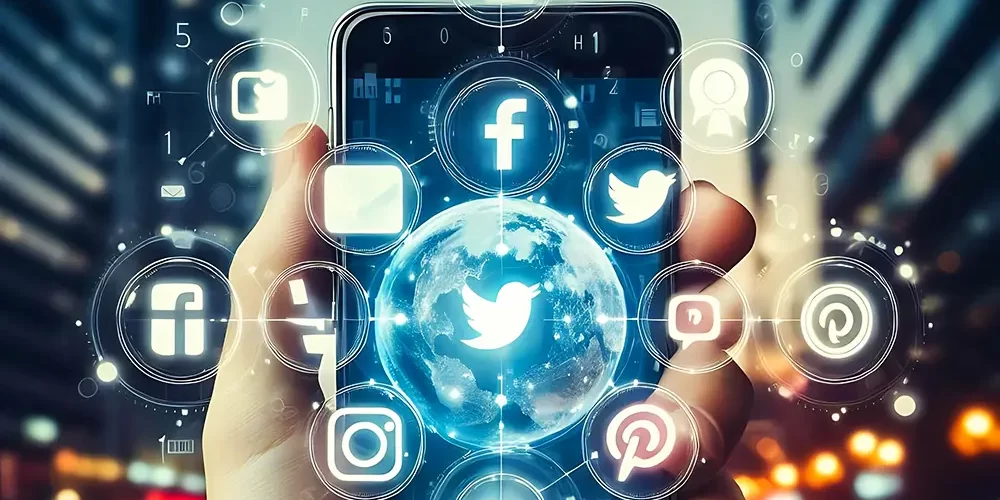Digital marketing has always been a dynamic field, constantly evolving with technological advancements and shifts in consumer behavior. As we look toward the future, several emerging technologies and paradigms are set to transform how businesses engage with their audiences, making marketing more personalized, efficient, and impactful.
1. Artificial Intelligence and Machine Learning
Artificial intelligence (AI) and machine learning (ML) are revolutionizing digital marketing by enabling more personalized and efficient customer interactions. AI algorithms can analyze vast amounts of data to identify patterns and predict consumer behavior, allowing marketers to create highly targeted campaigns. Chatbots, powered by AI, provide real-time customer service, enhancing user experience and engagement. Moreover, AI-driven analytics offer deep insights into campaign performance, enabling continuous optimization.
2. Augmented Reality and Virtual Reality
Augmented reality (AR) and virtual reality (VR) are transforming the way consumers experience products and brands. AR allows users to visualize products in their real-world environment, enhancing online shopping experiences. For example, furniture retailers enable customers to see how a piece of furniture would look in their home through AR apps. VR, on the other hand, creates immersive brand experiences, such as virtual tours of real estate properties or interactive 3D product demos. These technologies not only enhance customer engagement but also drive higher conversion rates.
3. Voice Search and Smart Assistants
The rise of smart assistants like Amazon’s Alexa, Google Assistant, and Apple’s Siri has led to an increase in voice search queries. Marketers need to optimize their content for voice search, which often involves a more conversational and question-based approach. This shift requires a focus on long-tail keywords and natural language processing (NLP) to ensure content ranks well in voice search results. Additionally, integrating with smart assistants can provide brands with new touchpoints for customer interaction and engagement.
4. Blockchain Technology
Blockchain technology is poised to bring transparency and security to digital marketing. With blockchain, advertisers can verify the authenticity of ad impressions, combating fraud and ensuring that marketing budgets are spent effectively. Additionally, blockchain can enhance data privacy by giving users more control over their personal information. This trust-building aspect of blockchain can lead to more willing data sharing by consumers, which in turn enables more personalized and effective marketing campaigns.
5. Data Privacy and Ethical Marketing
With increasing concerns about data privacy, marketers must prioritize ethical data practices. Regulations like GDPR and CCPA have made it essential for companies to be transparent about data collection and usage. Future digital marketing strategies will need to balance personalization with privacy, ensuring that consumers feel secure and respected. Ethical marketing practices will not only help in complying with regulations but also in building long-term trust and loyalty with customers.
6. Influencer Marketing Evolution
Influencer marketing continues to grow, but it is evolving. Micro and nano influencers, who have smaller but highly engaged audiences, are becoming more valuable for brands seeking authentic connections with niche markets. Additionally, the rise of virtual influencers—AI-generated personas with their own social media followings—offers new possibilities for brands to reach audiences in innovative ways.
7. Hyper-Personalization
The future of digital marketing lies in hyper-personalization, where every interaction is tailored to the individual. Advanced data analytics and AI enable marketers to deliver personalized content, offers, and experiences based on real-time data and consumer behavior. This level of personalization increases relevance and engagement, fostering stronger customer relationships and driving conversions.
The future of digital marketing is incredibly promising, with emerging technologies and paradigms offering new ways to connect with and understand consumers. By embracing AI, AR/VR, voice search, blockchain, ethical data practices, evolving influencer strategies, and hyper-personalization, marketers can stay ahead of the curve and create more meaningful, impactful, and ethical marketing campaigns. As technology continues to advance, the possibilities for innovation in digital marketing are virtually limitless, paving the way for a more connected and engaging future.






